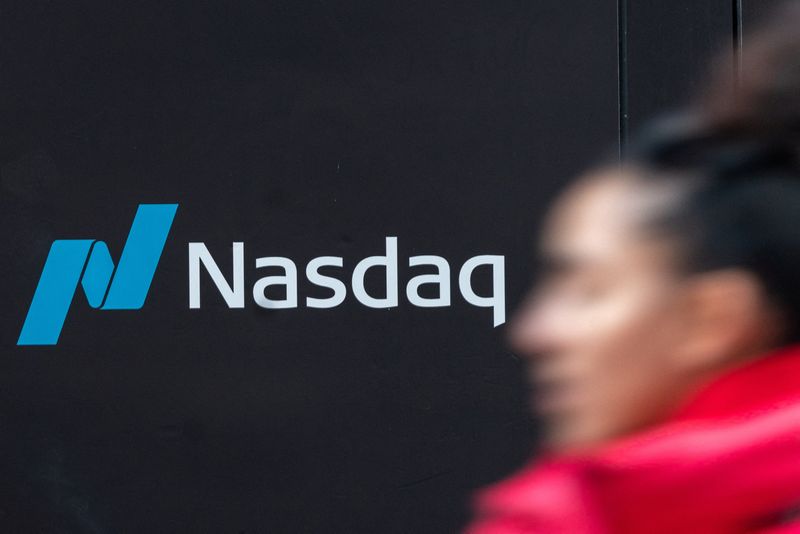Flutter Entertainment beats Q3 earnings estimate despite sports results impact
Investing.com -- The “tug of war” between mega-cap growth stocks and the rest of the equity markets is expected to persist in 2025, according to RBC Capital Markets.
The mega-cap growth trade has seen a significant rebound as the end of 2024 approaches, outperforming the broader market. RBC notes that its basket of top 10 market cap companies in the S&P 500 has reached new heights relative to the rest of the index. A similar trend is also evident in the Russell 1000 Growth index, which has surged compared to its Value counterpart.
RBC observes that stronger economic and earnings tailwinds are necessary for Value stocks or a broader market leadership to take over smoothly. However, current earnings dynamics continue to favor mega cap growth stocks.
That said, the firm’s strategists point out that the mega-cap growth trade remains “extremely crowded,” with record buyside positioning in Nasdaq 100 futures last week. Moreover, valuations in the top 10 names and growth stocks appear more problematic than in other market areas, potentially fueling interest in a market rotation.
“Our bottom line: we expect the tug of war between mega cap Growth and everything else for equity market leadership to persist in the new year,” strategists led by Lori Calvasina said in the note.
The recovery in mega-cap growth trade ahead of a new year is no surprise, strategists added, given favorable earnings dynamics and emerging concerns about the interest rate environment and inflation.
“We continue to believe that a stagflationary environment is one that benefits the old mega-cap Growth leadership,” they said.
Meanwhile, RBC notes a downturn in small-cap stocks compared to large caps, marking a return to the trend of small caps underperforming.
The firm had anticipated this volatility, citing high valuations and crowded trades in Russell 2000 futures. It emphasized last week that small caps require stronger economic tailwinds to regain leadership.
Also, RBC said that the adjustment of Federal Reserve rate cut expectations poses another challenge for small caps, which have been influenced by hedge fund trading based on Fed policy shifts over the past 18 months.
